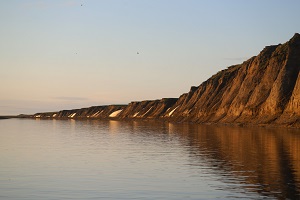Please activate JavaScript in your browser to use all interface options.
- About Rosneft
- Corporate governance
-
Business
Upstream
- General Information
- Licensing
- Geological Exploration
- Reserves and resources
- Production and Development
- Gas Business
- Offshore projects
- Offshore equipment
Downstream
- Petroleum refining
- Gas Processing
- Petrochemistry
- Catalyst plants
- Production of lubricants
- Sales of oil products
- Sales of Petrochemical products and LPG
- Gas Sales
- Gas Motor Fuel Sales
-
For Investors and Shareholders
- Corporate documents
- Financial statements, presentations, annual reports
- LSE RNS disclosure
- Investor calendar
- Rosneft: Contributing to Implementation of UN Sustainable Development Goals
- ESG
- Equity
- For Insiders
- Shareholder’s Personal Account
- General shareholders' meeting
- Dividends
- Questions and answers for shareholders
- Investor tools
- Contacts
- Beware of fraud!
- Sustainable Development
- News room
Rosneft Begins Research on Valuable Fish Species in Taymyr
30 September 2025
Rosneft’s expedition to study valuable fish species in the Yenisei River estuary has departed from Dudinka. The fieldwork is being carried out by leading specialists from the Marine Research Centre at the Lomonosov Moscow State University, the Murmansk Marine Biological Institute of the Russian Academy of Sciences, and the Company’s Arctic Research Centre. The expedition is part of Tamura’s corporate environmental programme.
The Tamura programme, launched in 2024, aims to update information on the status of key animal species in the Far North. Scientists are studying the Kara subpopulation of polar bears, wild reindeer and valuable species of birds and fish in western Taymyr. The programme will run until 2027.
The first stage of the research project on the fish fauna of the Yenisei estuary involves a variety of studies, including an evaluation of the population status of the most valuable species, and an analysis of the ecological conditions of their habitats and spawning grounds.
The scientists will study the fish’s food sources: phytoplankton, zooplankton and macrozoobenthos. The research vessel will travel the entire estuary of the Yenisei River from Dudinka to the port of Tanalau, including the largest tributaries of the Yenisei such as the Bolshaya Kheta, Pelatka, Dudinka, Tanalau, and Muksuniha rivers.
The second stage of the research, which is planned for 2026, will focus on assessing the status of fish populations in the region during different periods of their life cycles, including feeding and spawning. The research will also include biological analysis, which means measuring the weight, size, and eating habits of the most common and valuable fish species in the Yenisei, such as muksun, broad whitefish, and nelma.
The samples collected during the expedition will be analysed in the specialised laboratories of the project participants.
Rosneft pays special attention to biodiversity conservation, implementing the most extensive Arctic research programme since Soviet times. Over the past 13 years, more than 60 expeditions have been carried out to study the hydrometeorological, geological and biological features of the region. This has resulted in a unique collection of information on the climate, nature and wildlife of the Arctic. It has been the source of a unique body of information on Arctic climate, nature and wildlife.
Department of Information and Advertising
Rosneft
September 30, 2025

-315xx70.png)

